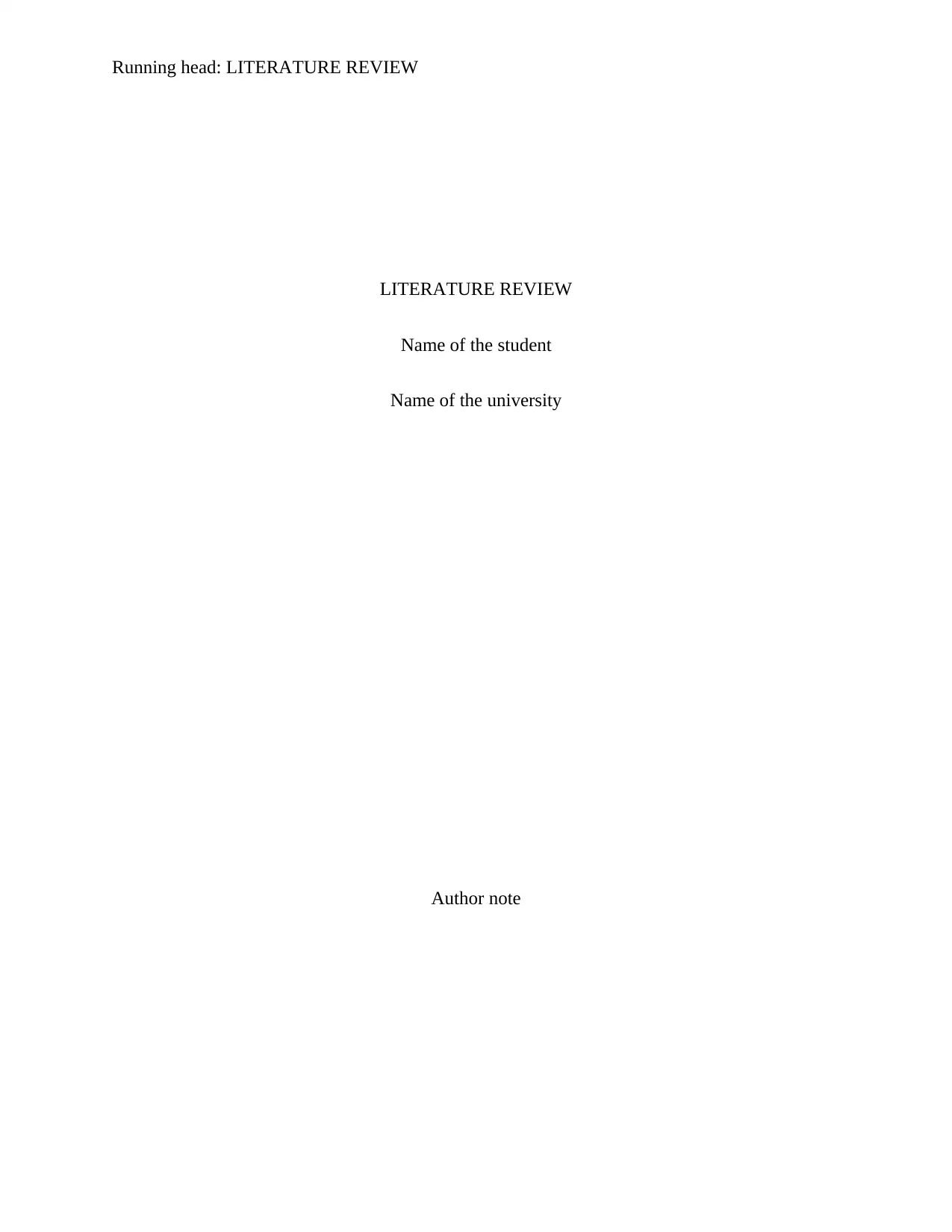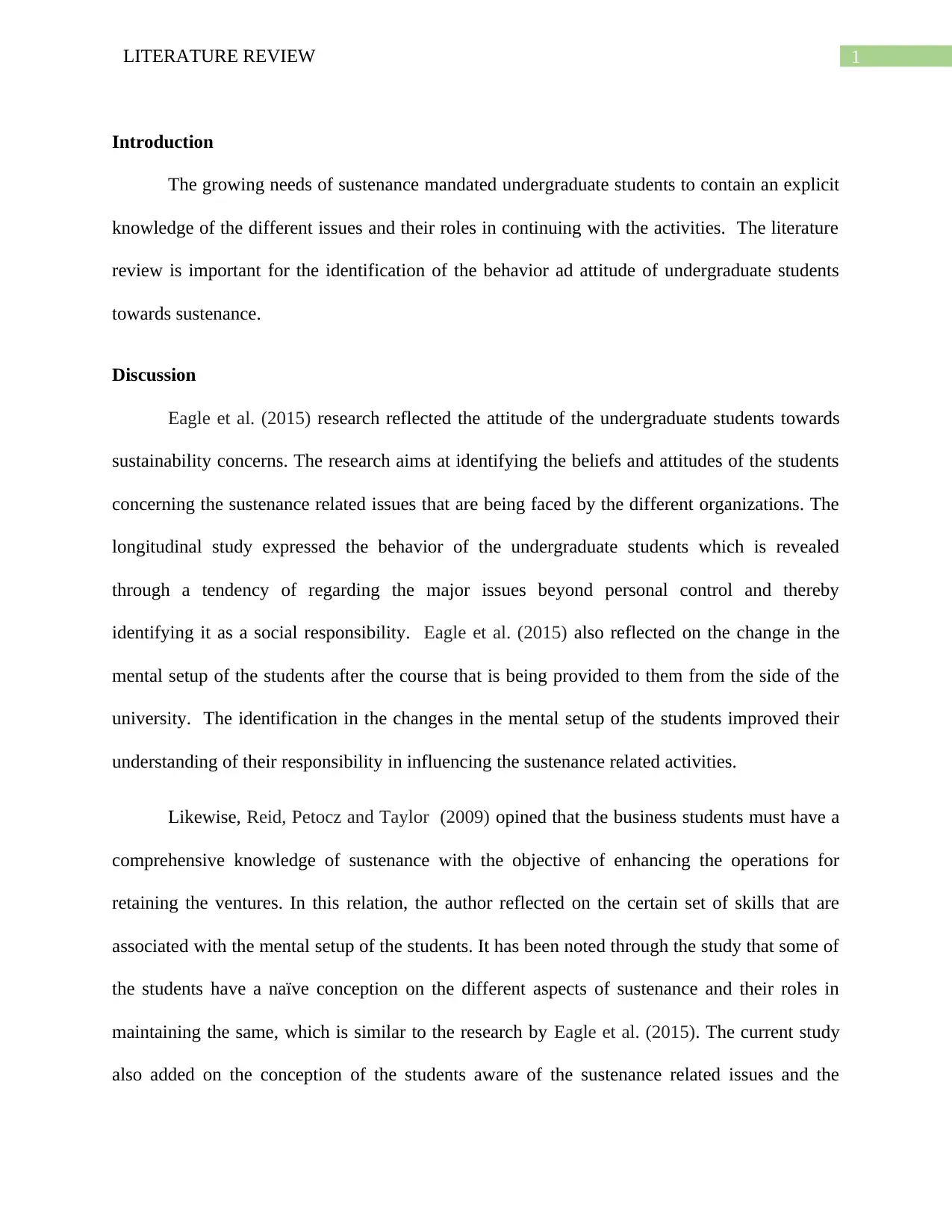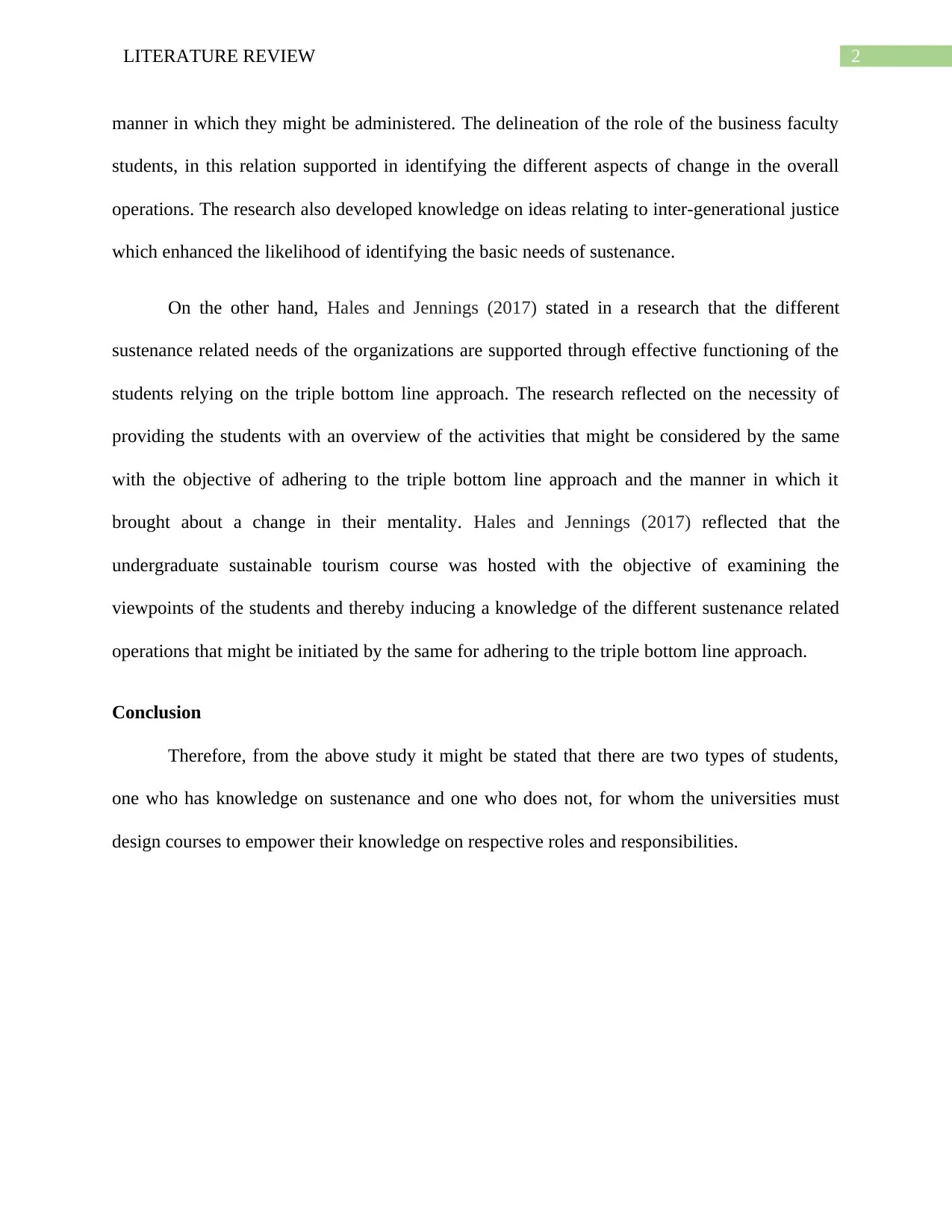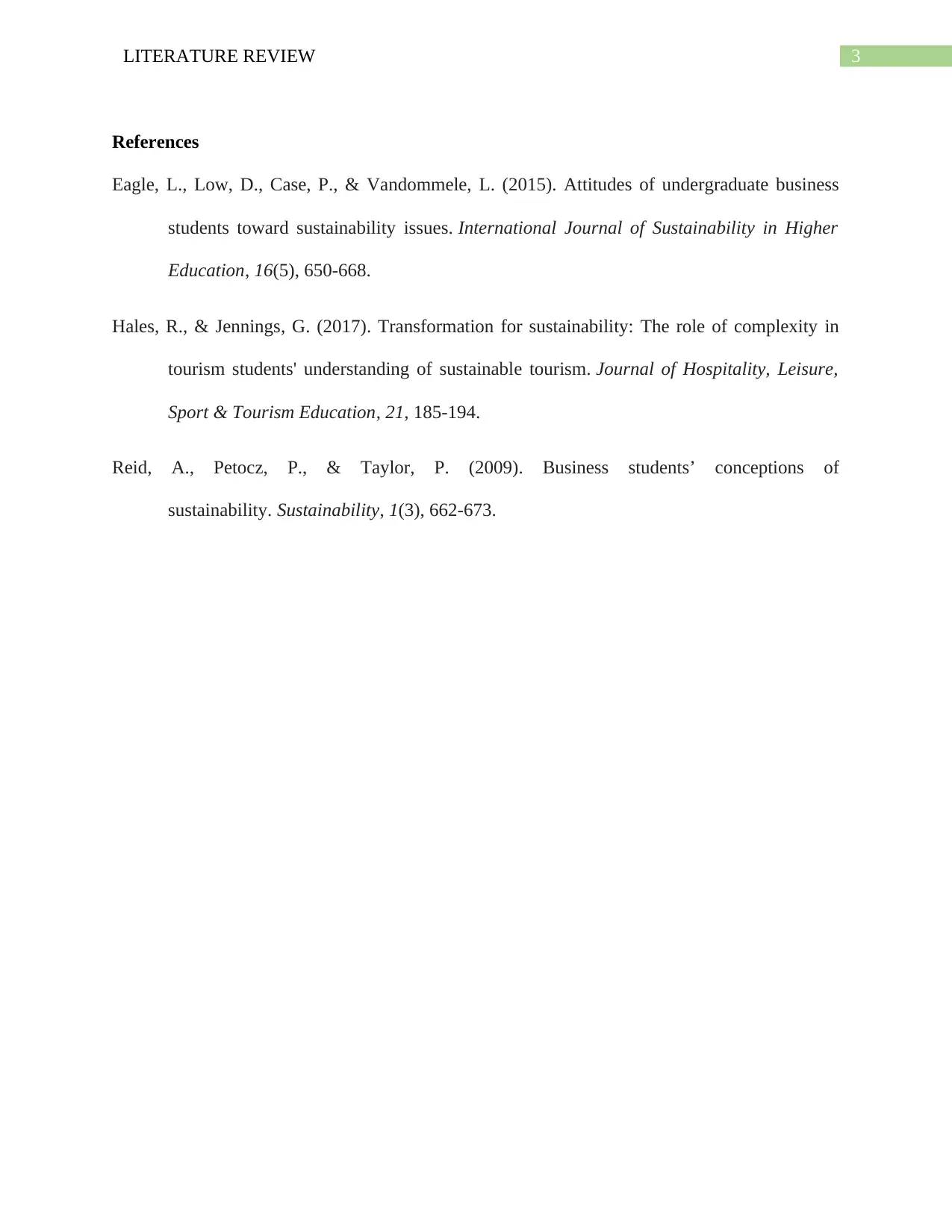Literature Review: Sustainability Attitudes of Business Students
VerifiedAdded on 2022/11/15
|4
|697
|337
Literature Review
AI Summary
This literature review examines the attitudes and understanding of undergraduate business students regarding sustainability. It analyzes three key studies: Eagle et al. (2015), which explores students' beliefs and attitudes, revealing a tendency to view sustainability issues as beyond personal control, and how course interventions can shift these perceptions; Reid, Petocz and Taylor (2009), which highlights the need for business students to have comprehensive sustainability knowledge and identifies varying levels of student understanding; and Hales and Jennings (2017), which focuses on the role of the triple bottom line approach in student understanding and the impact of a sustainable tourism course. The review concludes by emphasizing the importance of designing courses to empower students with knowledge of their roles and responsibilities in sustainability efforts, and the need for further research to address gaps in current understanding, especially in the context of business education.
1 out of 4











![[object Object]](/_next/static/media/star-bottom.7253800d.svg)